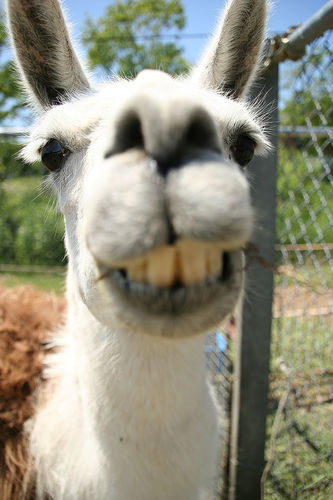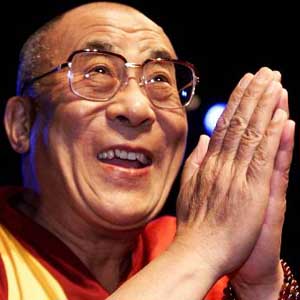A few decades ago I wrote an essay about the impact of state terror on Argentine society. One of my points was that terrorism was used by the military dictatorship known as the “Proceso” not because it was particularly effective at ferreting out subversives but because it worked as an atomising agent in Argentine society. That is, it used pervasive fear of institutionalised terrorism as a means to “infantilize” people and increasing isolate and alienate them as individuals, which served to destroy the horizontal social bonds that were the basis of collective solidarity among the groups targeted by the dictatorship. That in turn eased the way for the imposition of so-called neoliberal economic policies that redistributed income downwards for the majority, significantly curtailed the State role in economic management and provision of basic public services, destroyed social welfare, health and education safety nets and pauperised the population in general while increasing the material fortunes of the elites associated with the regime.
State terror created a culture of fear that atomised and isolated people in the public space, thereby paving the way for their infantilisation as social subjects and eventual dependency on and subjugation by their dictatorial masters. What is less known is that the so-called “Dirty War” waged by the dictatorship known as the “Proceso” (Process) was justified not on economic but on cultural grounds, as a defense of “traditional (Catholic) values” placed under siege by immoral, degenerate, atheistic Communist subversion in the guise of liberalism, feminism, secularism, homosexuality, youthful rebellion and other depraved foreign ideologies that had no “natural” place in the patriarchal, heteronormative capitalist social status quo that dominated Argentina at the time. Now, in the contemporary era, a variant on this theme has been introduced into socio-political narratives in the liberal democratic West as well as elsewhere: Culture Wars.
In recent years conservative authoritarians have moved to using electoral facades rather than coups as a means of gaining and maintaining government office. Their weapon of choice is no longer terror imposed by or on behalf of the State but a defense of traditional values against attempts by progressives to undermine the moral fabric of society. Similarly, authoritarians out of office no longer seek to use guerrilla war as a main vehicle for conquering power but instead embark on crusades against “wokeness,” “political correctness” and perceived (and mostly imaginary) attacks on “free speech” by liberal-progressive-socialist-communists. In both cases the strategic move has been from a physical war of manoeuvre to a cultural war of position in which the battle is over values and identities, not necessarily (although ultimately involving) government offices, economic policies or physical terrain. In other words, the social backdrop to political competition and conflict is now increasingly dominated by Culture Wars.
That is notable because the Culture Wars approach rejects or replaces the most basic axiom in politics: that people vote with their wallets. Think of it this way. The MAGA crowd voted against its economic interests when it voted for Trump (even if Trump’s “America First” economic pipe dream was sold to them as feasible). More recently, both Vladimir Putin and Recap Erdogan in Russia and Turkey diverted popular attention from their disastrous economic policies and corruption towards a defense of “traditional” values, in Putin’s case “traditional” Christian values (supported by the Russian orthodox hierarchy) and in Erdogan’s case “traditional” Muslim values (again, supported by conservative clerics). They both railed against the depravity of the West and the corrosive impact the importation of Western mores and ideas has had on their respective societies. In fact, Putin went so far as to order the invasion of Ukraine because of its “degenerate” liberal (when not Nazi) leadership’s threat to the ethnic Russian part of the Ukrainian population. The point is that when Culture Wars are used as an electoral strategy in order to outweigh objective economic realities, they often are successful.
The emphasis on Culture Wars is understandable when conservative authoritarians have no economic legs to stand on. That is where the parallel between US and NZ conservatives come in. Neither the GOP in the US or National/Act in NZ have economic platforms that are remotely close to practicable, sustainable or deserving of popular support. They are in fact elitist in construction and elitist in benefit. So, rather than modify their economic policy platforms away from their exhausted and discredited neoliberal/market-driven trickle-down policies, these conservatives turn to inciting Culture Wars as a means of diverting attention towards superstructural and often artificial fault lines in their respective democratic societies. In the US things like gun rights and opposition to racial, gender and sexual equality may be an “organic” product of American Christian repression and its record of historical conquest, but in NZ the notion of unrestricted gun ownership rights and opposition to transgender rights (on the slanderous grounds that the latter are “groomers” and pedophiles) are foreign imports that have no “organic” or native origins in NZ society. However, the attacks on co-governance frameworks in NZ is indeed rooted in deep-seated Pakeha racism against Maori, so the fusion of foreign imported ideologies and local regressive perspectives on race mesh easily into a divide and conquer (so they think) Culture War strategy on the part of the NZ Right.
More broadly, the assault on gender and sexual identity minorities, immigrants and various types of non-traditional non-conformity that defy the traditional narrative about what the “proper” society should look and behave like is rife throughout the Western liberal democratic world even where gun rights are restricted in the interests of public safety (seen, not unreasonably, as a public good rather than an infringement on individual liberty), where racism is not a historical stain or contemporary problem or where economic policies have popular support. It is major a stock in trade of elected authoritarians like Victor Orban in Hungary, Andrzej Duda in Poland and former president Jair Bolsonaro in Brazil as well as a host of demagogic political and social figures throughout the world, to say nothing of outright autocrats like Putin, Erdogan and a swathe of Middle Eastern and African oligarchs and strongmen.
The important thing to bear in mind is that like state terror as a social atomising agent, Culture Wars work. Trump, Bolsonaro and Orban rode them to victory in democratic executive branch elections, Putin and Erdogan used them to rally support for their unpopular regimes (with Erdogan likely to win a run-off election next weekend in spite of his disastrous economic policies and Putin holding onto power like a (rat-trapped) rat on cheese despite Russia’s futile war on Ukraine). Wanna-be’s like Luxon, Peters and Seymour in NZ seem to believe that their best bet is to copy at least some aspects of the Culture Wars strategy and adapt them to Aotearoa’s particular circumstances in the run up to this year’s general election. Given the media attention devoted to co-governance, transgender rights (or better said, their mere presence), vaccinations and the use of Te Reo in public discourse, there may in fact be grounds for traction in that angle of approach. That makes it more imperative that people push back at the introduction of retrograde ideological arguments in the NZ context. They are largely not from here and have no place in Aotearoa.
The pushback is necessary for a simple reason. Culture Wars work as a socio-political strategy because they are based on a dirty little secret: that fear is a great perception and behaviour modifier. Culture warriors traffic in the promotion of fear, both real and imagined, rational and irrational. This fear is of targeted “others,” those who can be readily identified and easily scapegoated while also be made into seemingly malevolent Leviathans who must be struck back by common, sensible, “traditional values”-holding people–the silent majority, as it were. Although it is helpful to the Culture Was projects if the “others” look different, worship different Gods, have different customary practices or engage in non-heteronormative sexual behaviour, it matters less what the “others” actually do than that they are identified as threats to traditional values and mores. The use of disinformation and misinformation is helpful in this regard because fear is a tool whether the basis for it is true or not–and it is most often not true or grounded in reality. What matters is achieving the objective, not the truth. The objective, in turn, is to restore a previous societal status quo in the face of pressures to make it more equitable, inclusive and responsive to the needs of those marginalised.and voiceless under the “traditional” scheme of things.
Complacency is the ally of the Culture Warriors because silence allows them to megaphone their messages of fear and hate through corporate and social media unimpeded by fact checkers, truth-speakers or coherent ripostes. Decent people may believe that Culture Wars are just a side-circus show that does not in fact distract from bread and butter and other serious issues of the day when people make their political and social preference choices. But as the likes of Brian Tamaki and various conservative media talking heads have shown, they do in fact have an impact on public perceptions when not challenged by more tolerant and open-minded arguments. Their fear-mongering gains ground in the measure that complacency cedes them rhetorical space in the pubic discourse.
All of which is to say that although there may be considerable distance in practice between Argentine (or Chilean or Guatemalan or Salvadorean, etc.) state terrorism and the Culture Wars in contemporary democracies, they are on a continuum where fear (manufactured or real) is exploited for political and social advantage above and beyond the economic projects that may underpin them. As Bernard de Voto noted (paraphrased here), “a person’s eyes and ears and the fulcrum of his/her judgement supplies his/her capability for action.” The fulcrum of fear is made up of orchestrated “Othering” in which contending perceptions of norms, mores and acceptable behaviours, that is, the conflict between between traditional and “progressive” values, is focused on particular subjects and groups. The purpose of Culture Wars is to warp the ideological fulcrum on which social consensus rests in order to obtain political, social and often material advantage whether it be based in the truth or not.
As a bottom line culture warriors play dirty with the truth just as much as the Argentine Dirty War ignored international norms and strictures against the torture and killing of civilians. Much like the logic of the “Proceso” when defending its actions, the ends of the culture warrior justifiy the means, and in a world in which the value of tradition is increasingly under question and often challenge, warping of the ideological fulcrum in order to promote manipulable fear in the body politic is just as useful as the pliers, branding irons, cow-prods and battery clamps used by the Latin American torturers of yore.
To which I say now as I said back then, mutatis mutandis: “Nunca Mas!”
PS: For those who may be interested in the essay linked to above, please email me (pablo@kiwipolitico.com) and I will send you a copy of the entire essay as an attachment in my reply.


